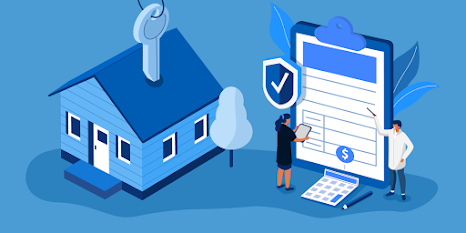Why You Need Title Insurance?
Title Insurance Expert
On this page, you will
discover master witnesses who can offer guidance regarding escrow and title
insurance. These advisors can give opinions about title examiners, title
claims, escrow accounts, and escrow agents. Escrow consultants can give reports
about escrow, escrow payments, and escrow instructions discovered here. They
may also give master testimony on escrow closing, escrow fees, and escrow companies,
among different topics.
You may restrict your
search for Title Insurance experts to a specific zone by selecting a state
starting from the dropbox. A successful closing requires a specialist.
As a land closing
master, you need the help of experts who perceive network associations and can
help direct you through the confusion of authoritatively allowed requirements.
That is the place
where the Consumers First Title insurance organization comes in.
As the largest
organization devoted totally to the administration of network associations,
they created numerous systems to support you. Consumers First Title online
solutions give prompt access to the correct data, with administering documents,
deed restrictions, and fitting data for government, state, and metropolitan
laws that influence operations and resales. Consumers First Title insurance
organization also guides you through network association legitimate
requirements that may influence you.
With regards to purchasing a home
buyers are regularly shocked that there are a
greater number of costs required than just an upfront installment.
In case you're just
starting out, thinking of 20% down is sufficiently hard! Toss in closing costs and
your head starts spinning.
It's no big surprise.
Purchasing and selling land is expensive, an expense most individuals aren't
ready for.
One of those expenses is private mortgage insurance. What's going on here? Also, for what reason do you need to pay for it?
We take a profound
plunge to take a gander at the mortgage insurance no one likes except for is
needed under specific conditions.
What is PMI?
Private mortgage
insurance, or PMI, is used for ordinary mortgage loans with less than 20% down.
It protects the loaning organization in the event that you stop making your
mortgage payments.
PMI can be given by a
private insurance organization or by the moneylender. In the event that you are
needed to pay PMI, it will make up a segment of your month to month home
investment. Just like property taxes, interest, and homeowner's insurance, PMI
does not form value in your property.
What's the distinction between PMI and MIP?
There are two types of
mortgage insurance. One is purchased from the government and is designed for
FHA advance borrowers. It's called Mortgage Insurance Premium, or MIP.
PMI, then again, is purchased
through the private sector for a standard mortgage. Each has its own set of
rules with MIP took care of and run uniquely in contrast to PMI.
For what reason am I needed to have PMI?
At the point when a
borrower has less than 20% down on an ordinary home advance, the loan
specialist requires PMI. Usually, private mortgage insurance premiums are paid
until you have a credit to-esteem proportion of 80%.
For instance, in the
event that you put 10% down on a $100,000 home. That is an advance to-estimation
of 90%. The more you own your home, the lower your LTV, which makes a borrower
less risky in the eyes of the loan specialist because of the value.
When you have an LTV
of 80%, PMI can be released. If you somehow happened to default on the home now,
the bank has a superior possibility of selling the property at foreclosure for
at any rate as much as they were owed.
How might I try not to pay PMI?
For the most part, you
must have 20% down to maintain a strategic distance from PMI. Be that as it may,
in 2016, Bank of America in partnership with Self-Help Ventures Fund and
Freddie Mac dispatched the "Reasonable Loan Solution" mortgage.
This is an adjusting
credit for low and moderate-pay homebuyers. It allows for an upfront
installment of 3% with no PMI.
•
Qualified
veterans who apply for a VA credit with 100% financing (no upfront installment)
don't need to pay PMI, by the same token. Nonetheless, a forthright subsidizing
expense might be required. There are, in any case, some specific veterans that
are absolved from this charge.
•
For strong
applicants, some credit unions will forgo the private mortgage insurance
expense.
•
There are
some lenders that offer non-adjusting and portfolio options with no PMI
required.
•
Lastly,
physician loans normally don't need PMI on mortgage loans with less than 20%
down.
Shouldn't something be said about the piggyback alternative?
The last choice for
staying away from PMI is to get what is known as a "piggyback"
credit. This is a smaller credit that covers the 20% initial installment,
permitting you to try not to pay private mortgage insurance.
Normally, however, the
smaller credit will have a higher interest rate. The advantage is you can
usually deduct that interest on your assessment form. The greater question to
consider might be whether you can stand to pay a second credit for X number of
years.
Eventually, you need
to gauge what's best for you and your financial situation. Seek out an expense
advisor or financial planner, if need be.


Comments
Post a Comment